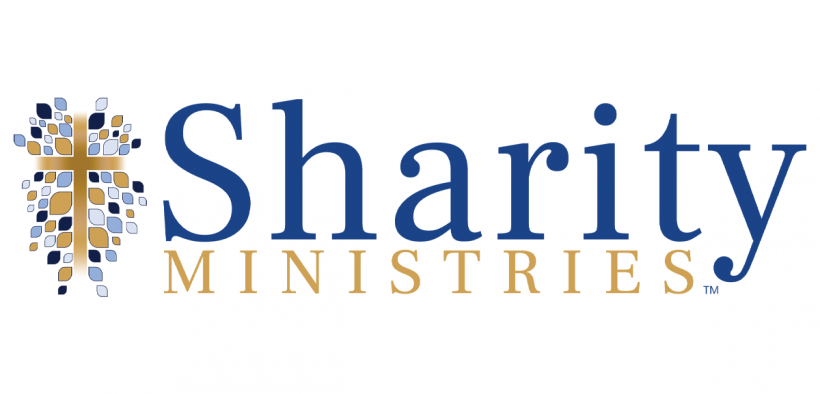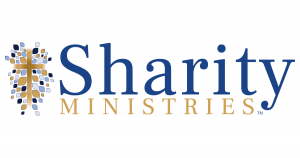Health Share Group John Oliver Exposed Declares Bankruptcy
Sharity Ministries will continue to operate during bankruptcy

“Last Week Tonight with John Oliver,” an Emmy-winning HBO comedy show that tackles serious topics, examined Health Care Sharing Ministries (HCSM), in a June 27 episode that featured the usual comedy, sarcasm, and profanity.

Oliver even announced facetiously that he has launched his own health share company, JohnnyCare, to show how “scarily easy it is.” Membership is $1.99 and members receive three bandages.
“See if you qualify to send us money and get almost nothing in return,” said Oliver. JohnnyCare is a ministry of Oliver’s Church of Perpetual Exemption, which was founded in 2015 to show how easy it is to set up religious nonprofits with the Internal Revenue Service.
Last week, Sharity, one of the HCSM’s Oliver covered on his show, declared bankruptcy while it continues to operate.
According to The Wall Street Journal, “Sharity Ministries Inc., a medical-cost-sharing nonprofit for Christians, has filed for bankruptcy protection in an effort to keep operating amid accusations by state authorities that it deceived consumers by running a sham health-insurance business.”
“The nonprofit said it would use bankruptcy to break many of its contracts with Aliera Cos., which provides administrative, marketing, sales, and other services,” the article stated.
Aliera, which is described by some regulators as a “sham” ministry, faces legal or regulatory actions in more than half a dozen states: New York, Connecticut, Washington, Texas, New Hampshire, and Nevada. States claim Aliera and its partnering companies deceived many consumers into buying what they thought was insurance that would cover their claims.
Ministry Watch has explored problems in the industry, which serves an estimated 1 to 2 million Americans, in 2019 and 2020.
The Sharity Ministries News web page offers no information about the bankruptcy. The nonprofit organization is the subject of numerous complaints to the Better Business Bureau.
Reader asks for help
After Oliver’s show on HCSM industry aired, a reader wrote to Ministry Watch about Oliver’s presentation, saying it made some valuable points about bad organizations that have generated the most complaints, but it failed to acknowledge the significant good done by the legitimate groups.
“Would you be willing to tackle this, with the focus being on DIFFERENTIATING between the good ones and the bad ones?” the reader asked. “Most people are not equipped, either by training or experience, to evaluate an insurance company, let alone a health share ministry. Perhaps it is time to help Christians to make good choices.”
We reviewed Oliver’s critique with Dale Fenwick, president of Florida-based Sovereign Insurance Services. For 30 years, Fenwick has helped companies create “captive” insurance companies that provide coverage to specific groups, as opposed to the general public, the same approach taken by HCSMs. He has also been a long-term—and very satisfied—member of Medi-Share, one of the leading health share ministries.
Here’s a look at Oliver’s charges, as well as a list of steps consumers considering health share should take
Who and what is covered?
Health share ministries target evangelical Christians, and a growing number of Catholics, but they deny coverage to people who engage in unhealthy practices considered inconsistent with a “Christian lifestyle,” including alcohol, tobacco, abortion, and same-sex relationships. They also deny coverage to people with pre-existing conditions, mental health needs, or obesity. And they don’t cover routine preventative, maintenance, and wellness care.
On his show, Oliver cited the ministries’ “ruthless denials,” including the case of a Colorado Springs woman who was attacked and seriously injured outside a bar. The ministry denied her claim, explaining it’s refusal by referencing its alcohol policy. The woman sued.
Oliver suggested consumers are confused by health share ministries, which are not insurance, but are often sold as if they are. But Fenwick says, “The person who sued didn’t understand the nature of the program they were in.”
Access to MinistryWatch content is free. However, we hope you will support our work with your prayers and financial gifts. To make a donation, click here.
Health regulators in more than half a dozen states have gone after one of the industries bad actors, Aliera, which is behind Trinity Health Share, an outfit that state regulators have called a “scam” and a “sham.”
Fenwick says he has never experienced a denial from Medi-Share in his eight years as a member, which has included three hospitalizations and more than $100,000 in reimbursement checks. He has also received $400 for referring others to Medi-Share.
Fenwick rejects Oliver’s claim that decisions about coverage are arbitrary.
“Reimbursements are not arbitrary,” says Fenwick. “John Oliver made it seem like there’s a Wizard of Oz character behind a curtain, and today he says yes, but tomorrow the wizard will say no. But coverage is spelled out in the ministries’ guidelines.”
Fenwick says health share is designed for necessary medical procedures, not the regular visits for wellness and maintenance that consumers should budget for. And he says the decision to exclude people who engage in unhealthy sins or have pre-existing conditions benefits members, creating a healthier group thus reducing costs.
Unregulated gray area
Health share ministries are voluntary associations that are not regulated like insurance, and are not under any obligation to pay anyone benefits. But Fenwick says the three biggest, best, and longest running three groups — Samaritan Ministries International, Medi-Share, and Christian Healthcare Ministries — devote a significant share of their annual revenue to reimbursing members.
Fenwick says it’s the “bad apples” like Trinity — which was co-founded by a man convicted of federal securities fraud and perjury, and which has spent less than 20% of its revenue on patient care in some years — that are the real problem.
Fenwick describes “Johnny-come-lately” groups like Trinity as “entrepreneurial” health share providers, because they’re more interested in profit than care.
“It’s like, hey, let’s start our own insurance company,” he says. “Sadly, there’s a lot of people who find it easy to fleece the flock.”
But as John Oliver pointed out, health share groups have organized lobbying efforts that beat back regulation and promote safe harbor laws that let them operate in 30 states without oversight or regulation.
The Alliance of Health Care Sharing Ministries says its mission is to “protect the liberty of our member ministries to practice their religious convictions in health care,” and that mission includes opposition to government control. “It is crucial that we advocate and work for the preservation of our God given rights,” says the Alliance’s website.
In April 2020, the Alliance announced its Standards for Partner and Affiliate Member Organizations, but groups like Trinity easily ignore the standards.
Fenwick strongly opposes government regulation of the health share industry.
“This is a voluntary association, and the last thing any voluntary association needs, especially a Christian voluntary association, is government intervention,” he said. “That would be overly burdensome.”
While he opposes regulation, Fenwick does support a form of registration or notification that requires health share groups to inform state officials that they have members in the state.
“Should there be some regulations for HCSMs?” Fenwick asks. “Sadly, maybe so, if it’s minimal and light-handed. That may be the only way to prevent the bad apples from continuing to spoil the rest of the barrel.”
Tips for consumers
Consumers who buy into health share ministries are acting on faith and trust. Fenwick says they can avoid the industry’s bad apples if they follow these four steps.
1) Research: “Talk to a couple of people that you know who have personal experiences with health share,” he says. “This is not unlike the research you do before hiring a contractor to remodel your kitchen.”
2) Request a copy of ministries’ audited financial statement: “That’s going to tell you a lot of things, including how much money goes toward administration and marketing, and how much goes to paying medical bills,” said Fenwick. Financial statements will also show how much money a ministry has in reserve, an important factor for members awaiting payments.
3) Review websites like the Better Business Bureau: Oliver reported that Liberty Health Share has racked up more than 1,000 BBB complaints over the past three years, more than twice the number complain about Cigna, an insurance giant that covers many more people than Liberty.
“Visit these sites, read the complaints, and read company responses.”
4) Pray and reflect: “I ask people to prayerfully consider whether an HCSM is right for them, because health sharing it is really part of a different lifestyle than just purchasing regular insurance,” he says. “Members are expected to be healthier people.”
Fenwick says it’s the intangibles that have made him a loyal health share member for years, rather than buying insurance from major players in the industry he has served for 30 years.
Every Sunday during communion, he remembers the prayer he prayed with his Medi-Share representative, or “advocate.” “They’re adamant,” says Fenwick. “They don’t let you end a phone call without an offer of prayer.”



